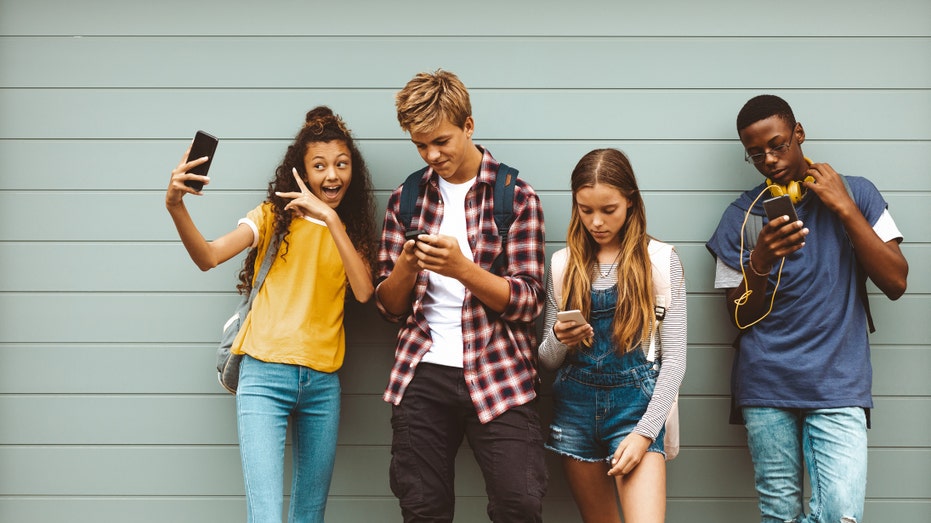A mom's guide to tackling the tricky topic of kids and smartphones in schools
In an age where school shootings and emergencies seem increasingly common, the ability for a child to immediately contact a parent is invaluable.

As a doctor and a mother of three, I've observed firsthand the growing debate around children having cell phones in school. I have struggled with the decision myself of whether to send phones to school with my kids. The topic is multifaceted, with valid arguments on both sides that touch on issues of safety, education, social development and overall wellness.
As a mother, my foremost concern is my children's safety. In an age where school shootings and emergencies seem increasingly common, the ability for a child to immediately contact a parent is invaluable. Cell phones provide a direct line of communication and location access, offering peace of mind to parents and a sense of security to children. I have noticed this becomes more important as a child gets older, especially once they are driving.
As a doctor, I understand the impact of distractions on cognitive functions that can happen when kids have open access to their phone at school. Cell phones, with their constant notifications and access to social media, can significantly distract students from their studies. The temptation to check messages or play games during class can detract from learning and lead to lower academic performance.
STATE LAWMAKERS PUSH FOR BAN ON PHONES IN SCHOOLS
We live in a digital age where technological proficiency is paramount, so a complete ban on technology would be detrimental to their development. Therefore, children must have a fundamental understanding of its benefits, risks and use. However, this should be teacher-led in an academic setting and limited to educational purposes without access to noneducational content that may negatively impact them during class.
We have also increasingly witnessed, with the use of technology, younger generations struggling with social skills and human interactions. From a psychological standpoint, excessive cell phone use can hinder the development of face-to-face social skills, influence insecurities and lead to cyberbullying. School is a crucial environment for children to develop interpersonal skills and build meaningful relationships while also feeling safe from discrimination. Allowing access to cell phones during the school day can impede these opportunities, leading to a generation less adept at personal interactions.
CLICK HERE FOR MORE FOX NEWS OPINION
While not specific to the school debate, overuse of cell phones has also been linked to various health issues, including eye strain, postural issues, sleep disturbances and mental health challenges, like anxiety and depression. The data has become so overwhelming regarding the detriments of screen use in kids that the Surgeon General has demanded Congress place a warning label on social media apps similar to alcohol and cigarettes.
Balancing the pros and cons of cell phone use in schools is nuanced but not impossible to do. My suggestions for school policies are simple:
Schools should be provided with technology to restrict social media use on campus.
Phones are not allowed out of the backpack during class time. If a student is on their phone during class for any reason, after a verbal then written warning, it is taken away and the parent needs to physically come to the school to pick up the phone.
Phones may be used during non-class periods (in between classes, lunch).
Students who cyberbully while enrolled in school (during school hours or off hours) have maximum consequences including suspension, expulsion and behavioral therapy.
Strict guidelines and policies can help harness the benefits while minimizing the drawbacks but they must be adhered to by teachers, administrators, students and children. All should agree to the above at the beginning of the school year in an effort to ensure joint responsibility. The use of cell phones is a privilege, not a right. And with that privilege comes responsibility.
As a doctor and a mother, I know the benefits of cell phones when used appropriately. However, it is essential to implement measures that place safeguards for our children against their proven negative impacts.
With careful guidelines and mandatory adherence, we can ensure that our children reap the benefits of technology without compromising their academic performance, social development or health.



